This premium content is exclusive to edie Members.
To find out more about edie Membership, please click below.
If you are an existing member, login here
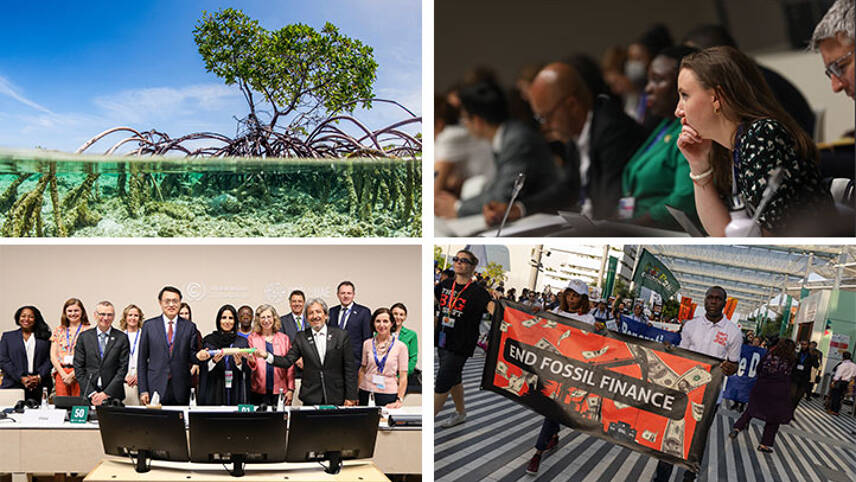
In may be the weekend for edie’s readers in the UK, but at COP28, negotiations and side events will continue through the days (and some of the nights) until Tuesday 12 December, when it is hoped that the final negotiated texts will be agreed upon.
Saturday 9 December has been hotly-anticipated by many COP28 attendees and observers as the Conference Presidency team have dedicated this day in the thematic agenda to nature, land-use and oceans.
As the day’s proceedings began, the UN’s climate chief Simon Stiell said: “Up to 14% of global emissions come from deforestation and land-use change alone. We need integrated approaches to global heating, biodiversity loss and land degradation. Otherwise, we’re burning through one of the Earth’s most powerful climate solutions.”
As the sun sets in Dubai, we bring you eight of the biggest stories from COP28 today, including a new declaration to better align national and international work on climate and nature supported by 16 nations.
You can find all of our COP28 coverage here.
OPEC tells member nations not to back fossil fuel phase-out
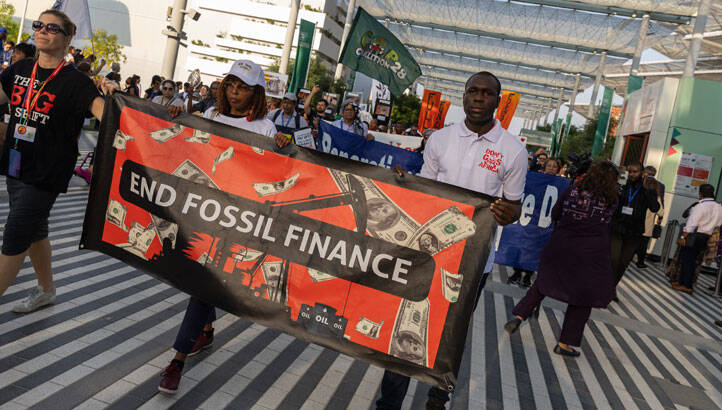
Image: UNFCCC Flickr / Kiara Worth
Negotiations on official texts are on a knife-edge with less than three days before the final agreement is due and, without doubt, the most talked-about debate is whether nations will agree to phase-out or phase-down fossil fuels.
Calls for a phase-out have been intense, backed by NGOs, scientists, academics, youth, climate-affected developing nations and some wealthy nations like the EU-27. Updates to negotiating texts made overnight into Saturday also mean that, even if a phase-down is decided upon, nations will agree that concerted efforts are needed this decades to scale renewables in a way that displaces fossil fuels.
The Organization of the Petroleum Exporting Countries (OPEC) is discontent to say the least. Its Secretary-General Haitham Al Ghais has saidv those calling for a phase-out are making “undue and disproportionate” criticisms of oil and gas. He is urging all OPEC member nations to support a text that would cover fossil fuel emissions, not the fuels themselves, thus leaving loopholes for carbon capture.
This kind of rhetoric has repeatedly and strongly been rebuked by UN Secretary-General Antonio Guterres.
350.org’s associate director of global campaigns, Cansin Leyim,said:”OPEC’s desperate resistance to a fossil fuel phase-out reveals their fear of a changing tide, evident in COP28 discussions. As 106 nations rally for a rapid fossil fuel decline, the draft text of the Global Stocktake offers hope with several options for a phase out of fossil fuels… The spotlight is now on the COP28’s Presidency and if they will broker a deal for a just transition or instead align themselves with the oil industry.”
Related to this, rumours are flying that Azerbaijan will be confirmed at COP29 host in the next week. It is an OPEC member with an economy more dependent on oil and gas than the UAE.
Negotiations reportedly lagging on adaptation
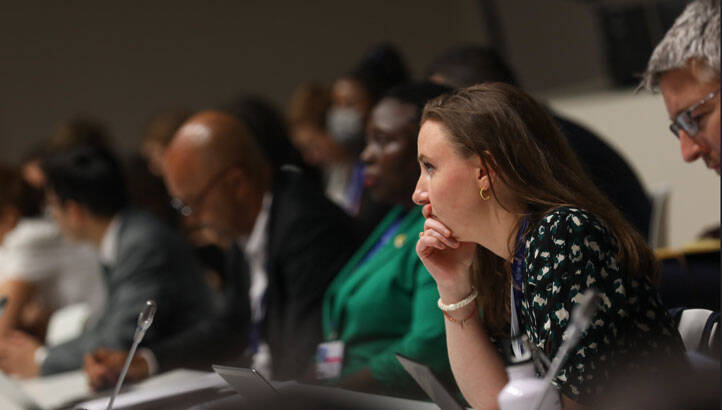
Image: UNFCCC Flickr/ Kiara Worth
COP27 saw the launch of the Sharm-El-Sheikh Adaptation Agenda – the world’s first comprehensive global plan to unite governments and non-state actors behind a set of goals to improve the resiliency of four billion people living in the most climate-vulnerable communities. Progress updates on key initiatives including early warning systems for all have been made at side events at COP28.
But observers fear momentum on adaptation is waning in the negotiating rooms. Another summer of extreme weather may not have focused hearts and minds to reach a new, stronger formal agreement on adaptation, loss and damage.
CARE Denmark’s climate policy advisor Obed Koringo said negotiatiors are “dropping the ball on adaptation and we are afraid that it will have catastrophic consequences for communities on the frontlines of the climate crisis especially in Africa where I come from”.
His calls to action include the adoption of an ambitious Framework for the Global Goal on Adaptation and urgent measures to address an adaptation finance gap of at least $194bn per year, with new money from wealthy nations. Ministers from Chile and Australia have been paired to help steer negotiations on this topic towards a consensus.
Nations support alignment of UN climate and biodiversity COP frameworks
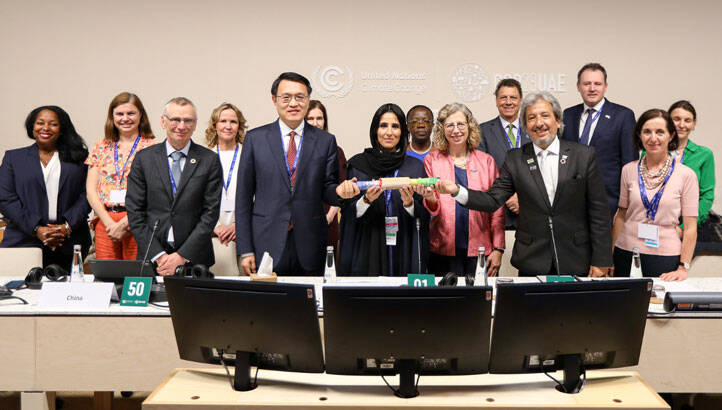
Image: UNFCCC Flickr / Mark Field
The UN convenes biodiversity COPs (CBD) less frequently than climate COPs. Since work began to create a new, post-2020 global biodiversity treaty at the 15th CBD, debates have intensified as to how the ‘tale of two COPs’ can become one (and, indeed, whether it should).
The biggest move from the COP28 Presidency today was the launch of a new vision to align the CBD and COP agenda, backed by 16 nations including the USA, UK, Canada, Brazil and Colombia. Other nations are being asked to consider supporting before COP finishes next week.
The Joint Statement on Climate, Nature and People states that nations should align action – domestically and internationally – on the Paris Agreement and UN Biodiversity Treaty. They should do so by updating and aligning their Nationally Determined Contributions on climate; National Action Plans on finance and Nature-Based Solutions Action Plans. Updates should include new finance and additional measures to enhance the representation and participation of vulnerable communities.
CBD Action Agenda Champion Manuel Pulgar-Vidal said: “By bringing together government partnerships and coalitions to coordinate integrated action on climate, biodiversity and land, the initiative has the potential to be a watershed moment in our approach to environmental challenges.
“Put bluntly, we will not succeed in meeting the goals of either the Paris Agreement or the Global Biodiversity Framework unless we start truly responding to climate change and biodiversity loss as parts of one planetary emergency. With 2030 rapidly approaching, we are running out of time to secure a transition to a nature-positive world and meet our climate goals.”
UN exposes $7trn nature-harming finance flows made annually
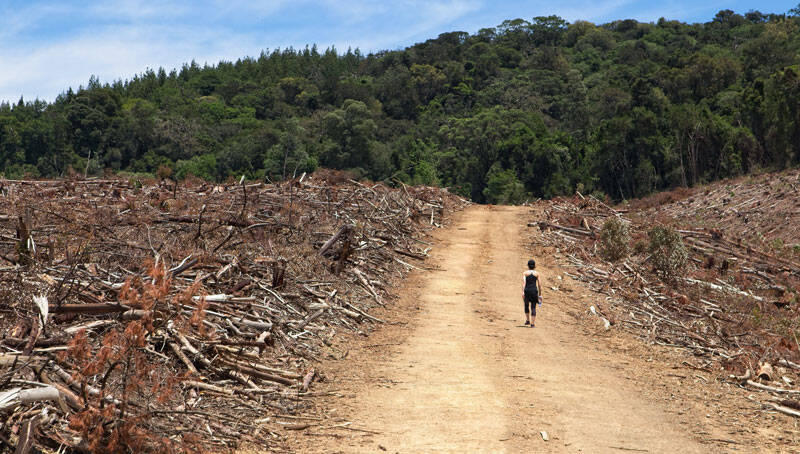
Pictured: Deforestation near Stutterheim, South Africa
COPs always come with a deluge of reports from all manner of organisations, but the UN Environment Programme’s (UNEP) Finance for Nature report is required reading.
Its headline finding is that, in 2022, almost $7trn in government subsidies and private investment flowed to sectors that directly harm nature, such as tobacco production, oil and gas extraction and construction. This is equivalent to 7% of GDP.
The majority of this funding, $5trn, came from private sources.
UNEP also found that, last year, nature-based solutions attracted $200bn, of which 82% was provided by governments. The body recommends that efforts are made to treble this figure by 2030.
It was underwhelming, therefore, to see the COP28 Presidency confirm that only $2.5bn of new nature finance has been announced at the summit so far.
Multilateral development banks publish nature-positive finance principles
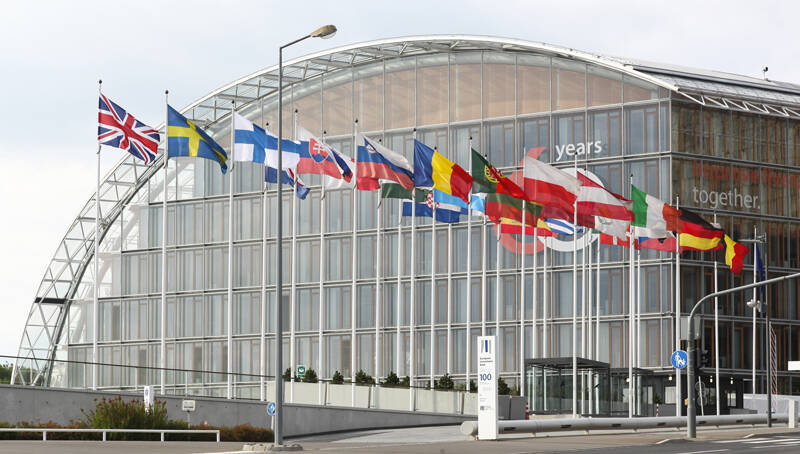
Pictured: The EIB building. Stock image.
In more positive news, multilateral development banks (MDBs) including the European Investment Bank (EIB) have published their first set of common principles for defining, measuring and scaling nature-positive finance. These principles were first promised two years ago at COP26 in Glasgow.
The long-term hope is to “mainstream” nature in MDB operations “in a systematic manner”, so that MDBs become an enabler of the delivery of the UN biodiversity treaty ratified last December. This is headlined by a vision to halt nature loss and destruction this decade and bring about restoration at an unprecedented scale, pace and quality thereafter.
The EIB will be the first to integrate the new principles, doing so from early 2024. The bank’s vice president Ambroise Fayolle said: “In doing so, we are committed to working with countries and the private sector to scale up nature positive investments worldwide.”
Mangrove Breakthrough backed by 49 nations

Stock image
Mangroves and coastal wetlands are thought to be four times as effective as mature tropical forests at sequestering carbon. Mangroves also provide key habitats and improve the resiliency of rivers and coastlines to extreme weather.
Ministers from 49 nations, plus dozens of non-state actors, today co-launched a new ‘Mangrove Breakthrough’ agenda through the Breakthrough 2030 platform of the High-Level Climate Champions.
This workstream aims to restore and protect 15 million hectares of mangroves by 2030 while also eliminating mangrove destruction. It is backed with an ambition to leverage $4bn of finance, with Germany, Norway and UK providing the first international funding for the scheme.
Initial information provided on 1.5C-aligned food roadmap
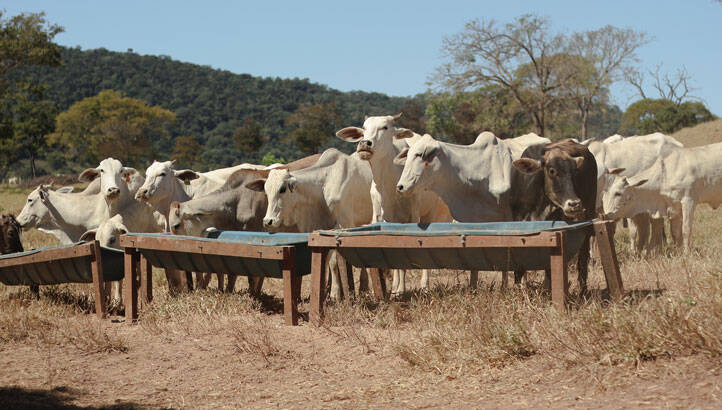
Stock image
Tomorrow (10 December), the COP28 Presidency’s thematic agenda centres on food, agriculture and water.
The UN Food and Agriculture Association (FAO) had promised to publish the first global, science-based plan for aligning food systems with the Paris Agreement’s 1.5C targets to inform debates on this day. It is being widely reported that this key tool, akin to the International Energy Agency’s transition roadmap through 2050, will be released on the day itself.
Details published on the FAO website today show that the roadmap will:
- Include specific targets for methane and nitrogen targets
- Emphasise the role of nature on farms in delivering international climate and biodiversity targets
- Encourage nations where meat and dairy consumption is high to implement changes
- Highlight how more sustainable farming is conducive to – not conunterproductive to – productivity and efficiency
Questions remain in many key areas, including the extent to which the roadmap will embed considerations relating to climate adaptation and whether smallholder and Indigenous farmers have had as much of a say as big businesses.
DeSmog has claimed that there are 340 attendees from industrial agriculture companies and trade groups attending COP28, triple the number present at COP27.


Please login or Register to leave a comment.